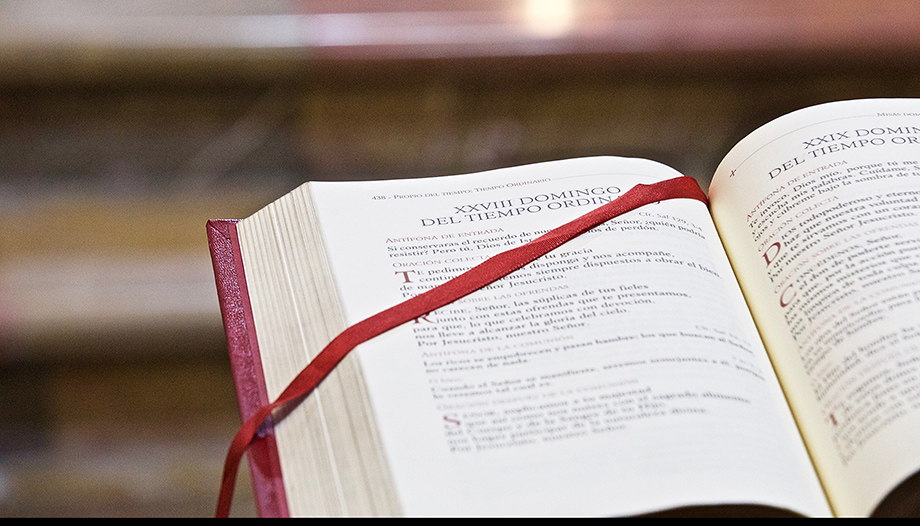Chapter 18 of Matthew's Gospel is known as "the Discourse on the Church" or "the ecclesiastical discourse" because in it Jesus outlines what the life of the Christian community should be like. He begins by encouraging us to have the humility of children and then exhorts us to radically reject sin.
Humility and the rejection of sin are basic conditions for a Christian community to function. But this is accompanied by a deep mercy to seek out and redirect those who have gone astray.
In today's Gospel, the Lord indicates three fundamental means to keep the Church healthy: fraternal correction, growth in faith under the direction of the bishops and unity in prayer.
Honest and direct correction, in case our brother or sister offends us or others in any way, is the best way to avoid the ulcer of resentment, gossip or divisions.
Instead of letting our anger burn out and eat us up inside, or -even worse- speak ill of the person who has offended us behind his back, Our Lord advises us: "If your brother sins against you, rebuke him when you are alone together.". But understanding our weakness, Jesus establishes a series of procedures in case the initial correction is not accepted.
In the first place, to take with us some witnesses to confirm what we have said or, if that fails, to denounce the matter to the Church. The exact way of living it today may vary in each community, but some form of fraternal correction should continue to be practiced.
Next, we come to growth in faith under the guidance of the bishops. Jesus had said earlier to St. Peter: "Whatever you bind on earth shall be bound in heaven, and whatever you loose on earth shall be loosed in heaven."but now extends the power to do so to the entire Christian community. Peter, the pope, has the authority to make binding decisions alone, but the Christian faithful, together with him and the bishops, can come to a common judgment on a matter.
We call this the sensus fideiThe sense of faith of the Christian people. We see this, for example, in popular piety, such as people's adherence to devotion to Mary or to Eucharistic adoration.
Another example is the growing recognition of our call to be stewards of God's creation for his glory and the good of others. The Holy Father invites all of us to exercise this calling. sensus fidei in the synodal process that has begun.
Finally, unity in prayer. "If two of you agree on earth to ask for anything, my Father in heaven will give it to them. For where two or three are gathered together in my name, there am I in the midst of them.".
To correct one another loyally, to share and develop our faith with others, and to pray together. In this way, we all contribute to building up the Church.
Homily on the readings of Sunday 23rd Sunday in Ordinary Time (A)
The priest Luis Herrera Campo offers its nanomiliaA short one-minute reflection for these Sunday readings.








